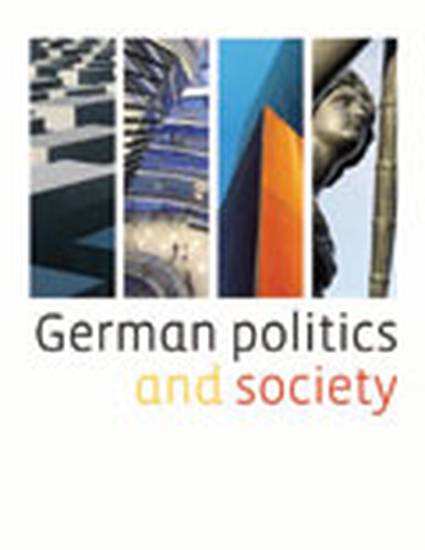
Article
The Best of Times, the Worst of Times: Angela Merkel, the Grand Coalition, and “Majority Rule” in Germany
German Politics and Society
(2016)
Abstract
Angela Merkel has not only been repeatedly ranked “the world’s most powerful woman;” she is also the only German chancellor since 1949 to have successfully led her party to a “normal” victory after a full term heading a grand coalition from 2005-2009. Merkel’s ability to lead has been shaped by the dynamics of coalition politics, proportional representation, and German federalism. Perceived as a more successful leader under an exceptional grand coalition than under a typical CDU/CSU-FDP constellation, Merkel provides a one-woman-laboratory for comparing the impact of different coalition modes on the chancellor’s powers and limitations on her ability to rule. The study offers a two-level analysis, comparing Merkel’s performance atop a “gender balanced” Grand Coalition (2005-2009) with Hans- Georg Kiesinger’s maledominated Grand Coalition (1966-1969). It then contrasts leadership dilemmas confronting Merkel during her first term with those arising during her second chancellorship, 2009-2013. It urges scholars to “bring the institutions back in” when considering the skills female leaders must evince in order to manage divergent coalition types: grand coalition configurations may, in turn, require men to adopt leadership behaviors usually ascribed to women in order to prove effective cross-party managers.
Disciplines
Publication Date
January 1, 2016
DOI
10.3167/gps.2016.340101
Citation Information
Joyce Marie Mushaben. "The Best of Times, the Worst of Times: Angela Merkel, the Grand Coalition, and “Majority Rule” in Germany" German Politics and Society Vol. 34 Iss. 1 (2016) p. 1 - 25 Available at: http://works.bepress.com/joyce-mushaben/5/
